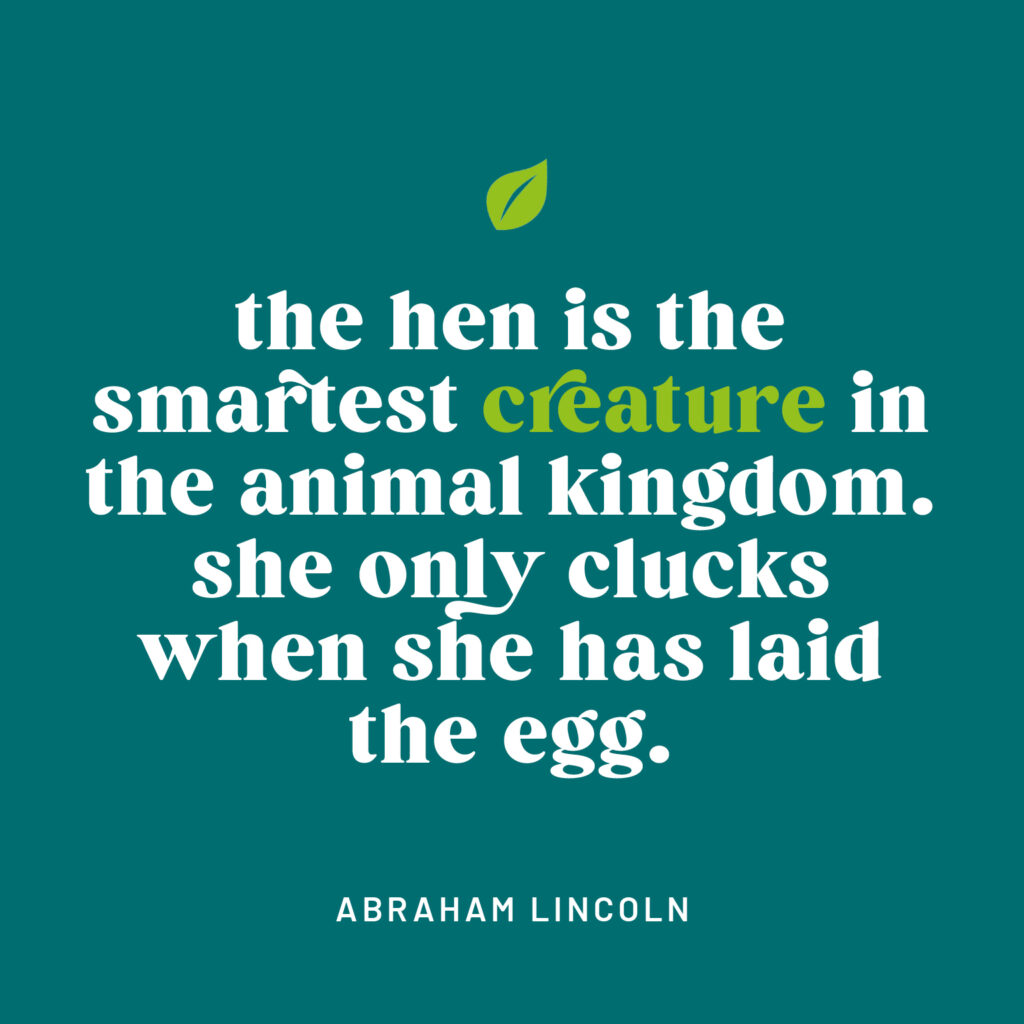ANIMAL WELFARE
Welcome to the Chicks‘ Club – why chickens make you happy

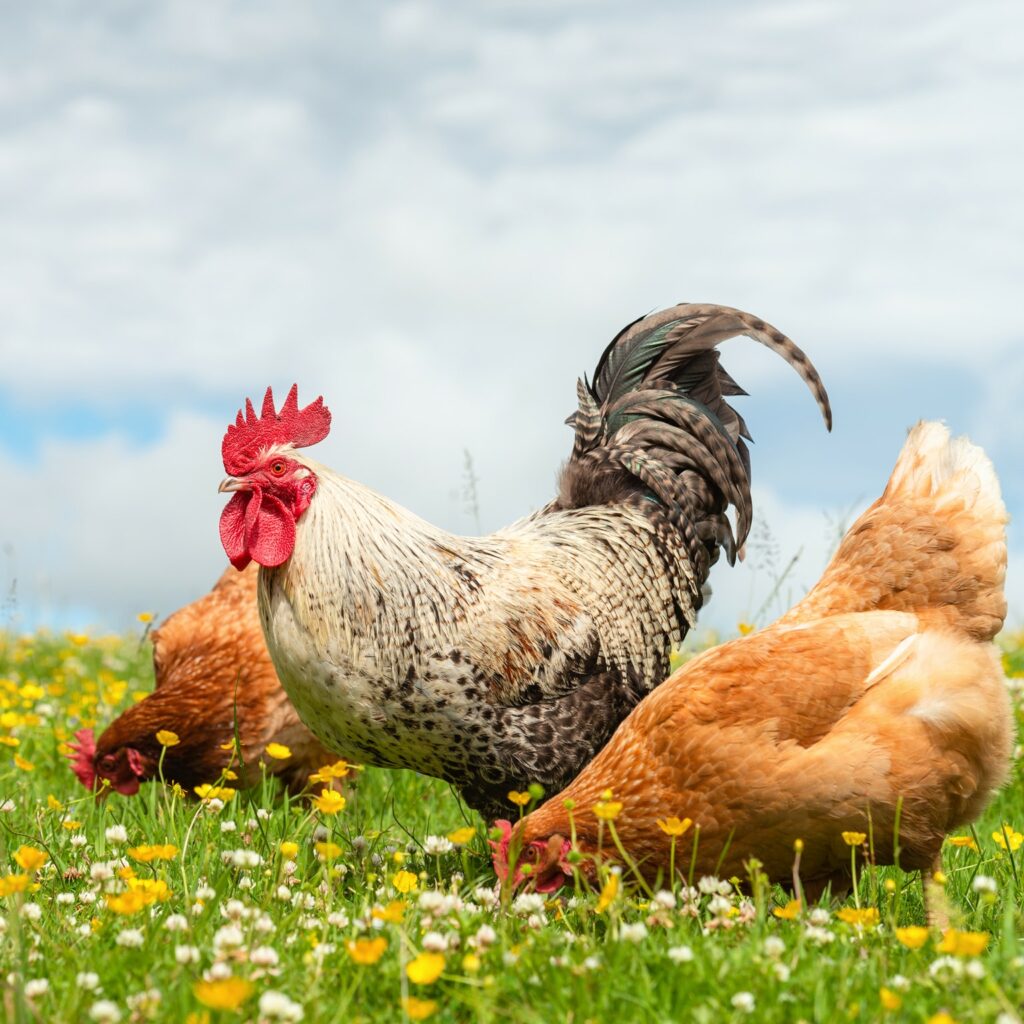
A farm, a rooster, three chickens – and a whole lot of happiness
Sometimes it’s the unexpected gifts that change your life. When I moved from the city to the country four years ago, it was a big step. The sounds of sirens and car horns were suddenly replaced by birdsong and the rustling of trees. But the real adventure began when my best friend showed up with a gift that would change my life forever: three hens and a magnificent rooster we named Heinrich. „Animals can be hard work, but without them everything is much harder,“ she said at the time – a sentence that turned out to be more profound than I could have ever imagined. Now, four years later, this little flock of chickens is an integral part of our lives – and a daily source of joy. May we introduce… and surprise you?
A life in motion – with feathers
For Heinrich and his ladies the day begins in the early morning, when the first rays of sunlight illuminate the yard. Heinrich’s crowing is our natural alarm clock and as soon as we open the stable door, the little flock streams out. Clucking expectantly, rooster Heinrich and his hens follow us to the feed bin, their tiny bodies bobbing in step behind us. It’s an almost meditative moment – a connection between man and animal that never fails to make us smile.
After breakfast their day’s work begins: walking around the yard, inspecting the patio, picking up a few grains that might still be hiding in the garden. Heinrich monitors everything with stoic composure, always keeping an eye on his hens. At lunchtime, they often move on to the neighbouring farm with the red house, where they occasionally get hold of small delicacies.
The ladies thank them with a daily surprise: chocolate brown, green and pale beige eggs, each as individual as the hen that laid it. Their daily life is a spectacle that attracts all the attention on our farm. They scratch in the soil, curiously visit the horses in the stable or greet our cat Brownie with a happy cackle. There is something both vibrant and reassuring in every movement of these animals.
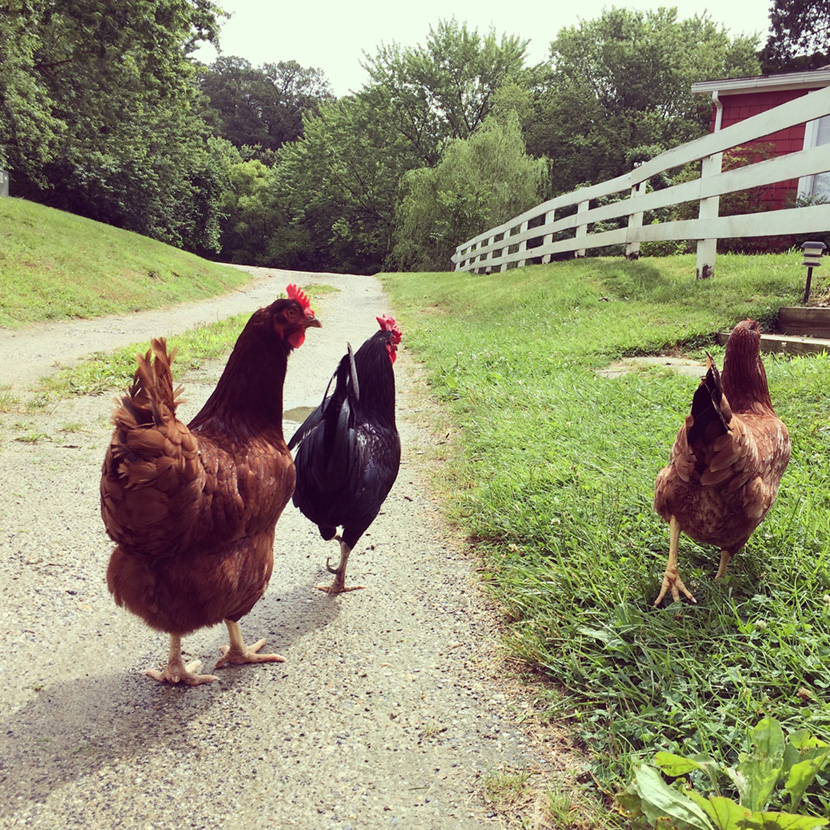
When the sun is high in the sky, it’s time for lunch. The small group seeks shade under our old apple tree, where they sit down, close their eyes and doze a little. If it’s particularly hot, they dig small holes to bathe in the dust – a chicken tradition that’s not only important for hygiene, but also something they clearly enjoy.
In the evening, as dusk falls, they return to their house. Always in single file, with Heinrich at the head, they move purposefully towards the stable. Inside, they take their places on the perch, snuggle up to each other and peace returns. It is a sight that warms the heart every day – this natural rhythm, this lived peace.
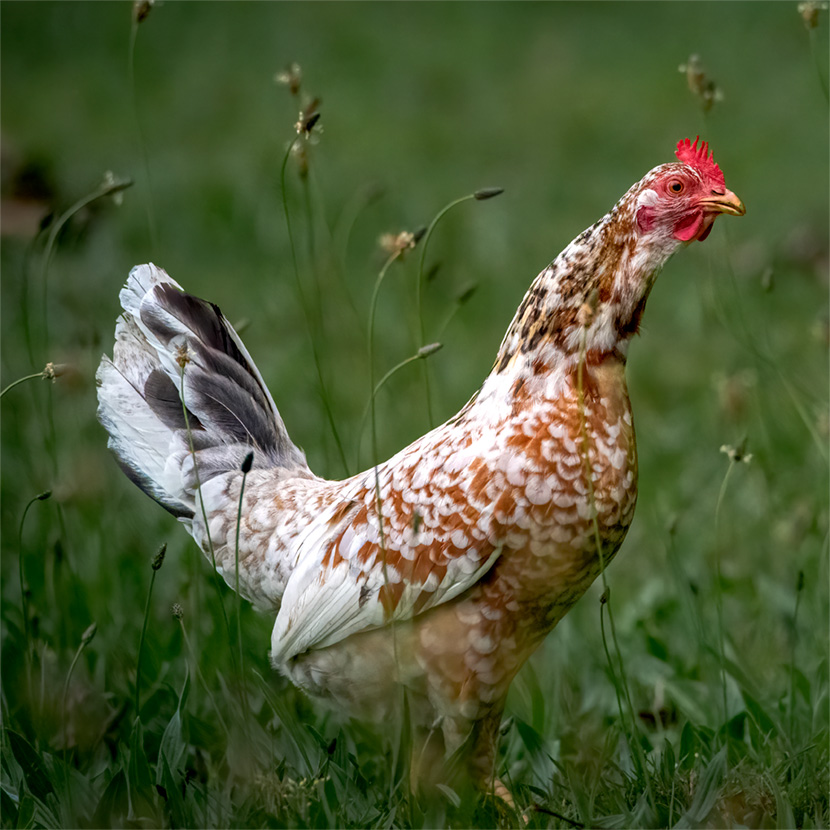
The fascination of chickens – small animals with great abilities
From the guinea fowl and ptarmigan, through the pheasant and quail, to the exotic hokko chicken of Central America, there is a huge variety of chickens in the wild. Even the Great Bustard, the heaviest (weighing up to 16 kilos!) flying chicken in the world, is one of them. But chickens are also among the world’s oldest domesticated animals. Their origins lie in south-east Asia, where the first wild bankiva chickens formed the basis of our current species. Initially, they were kept not for meat, but for religious reasons and probably for their eggs. There are now more than 500 different breeds, from the elegant silkie chicken to the robust Maran, which lays dark chocolate-brown eggs.
What many people don’t know is that chickens are surprisingly versatile. They are highly social and use a complex system of sounds to communicate. From warning calls to soft cooing for their chicks, every sound has a meaning. Their senses are acute: they can recognise more colours than we can and have an amazing memory, and can also distinguish between up to 100 faces, both of their own kind and of humans.
So much for stupid chickens! – Feathered intelligence meets instinct
Chickens are astonishingly intelligent. They can make logical connections, solve simple tasks and even think strategically. Some studies have shown that they have an understanding of quantities and even time. Particularly fascinating is their ability to learn by observation: Hens study the behaviour of others to learn where to find the best food or how to get a particularly hard-to-reach treat.
At the same time, their instincts are strong. Much of their social behaviour is based on this. But there are also individual behaviours, such as dust-bathing. Such a „bath“ is not only a pleasure, but also essential for plumage care. The instinctive search for a suitable nesting site follows a clear pattern aimed at ensuring the safety and comfort of the eggs. Their curiosity and inquisitiveness make them wonderful objects of observation – and sometimes real characters.
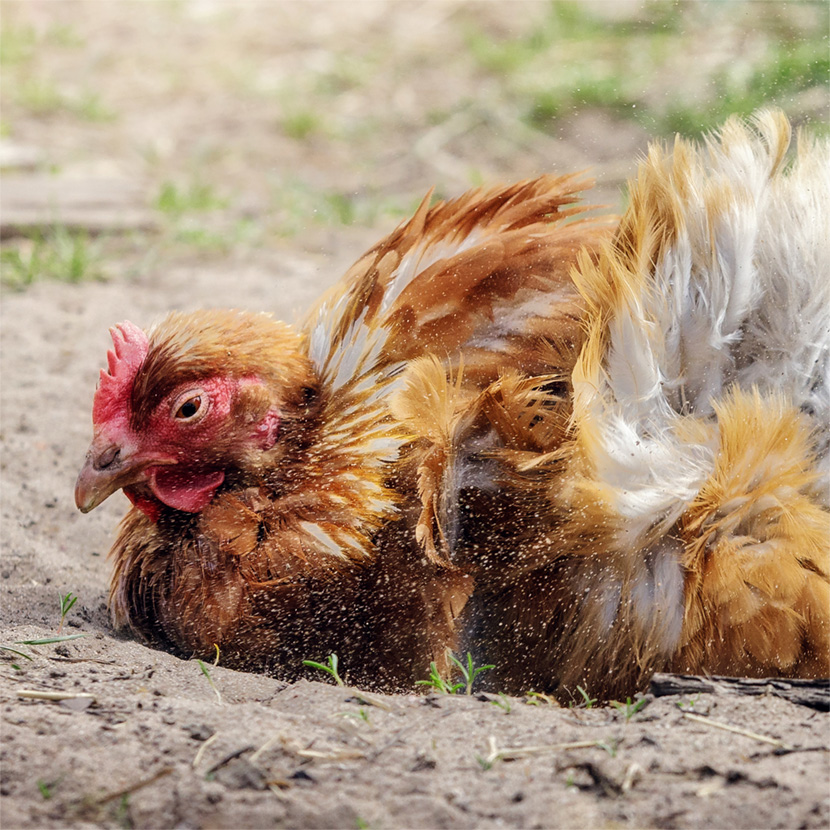
These are the top 3 chicken superpowers
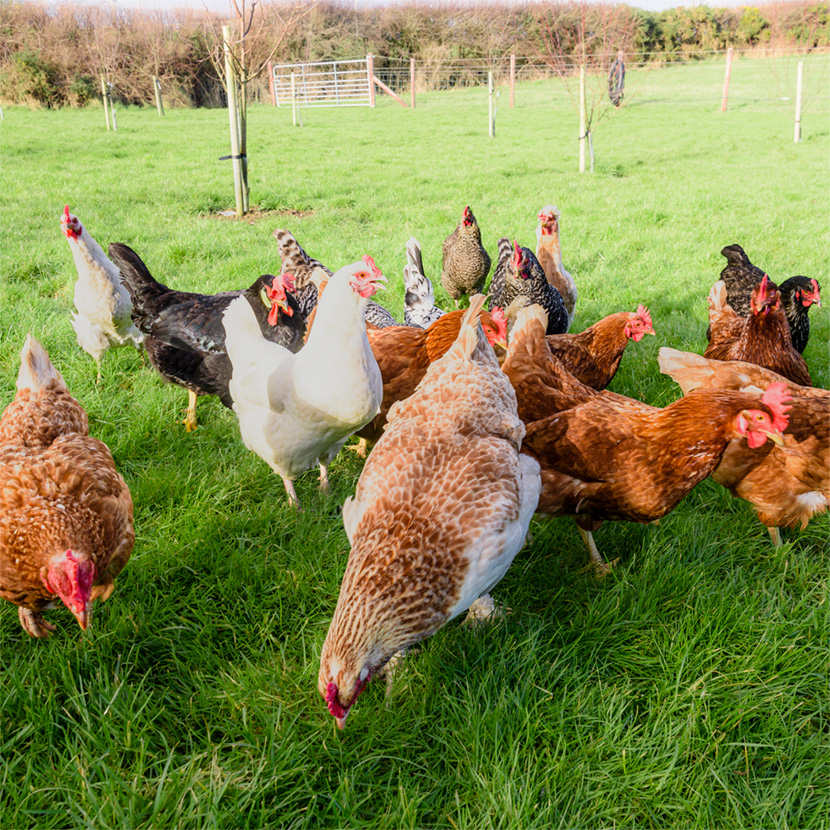
1. Social intelligence:
Chickens live in hierarchical groups or families with a strong pecking order. The boss is the rooster. Ideally, however, he should not have to look after more than six to ten hens (depending on the breed), as this can be stressful for him. Too many roosters, on the other hand, can increase the competitive pressure too much. There is also a boss among the hens, the alpha hen, who has priority over other hens, for example when it comes to feeding. Taking all these factors into account, there is good harmony in the hen family. And the individual members communicate extensively with each other, recognise each other and can distinguish up to 100 fellow chickens. This last ability is very similar to that of dogs. Who would have thought!
2. Problem solvers with the ability to learn:
Chickens are definitely underestimated here! Experiments show that chickens understand simple cause-and-effect relationships and learn from experience. Much like humans, chicks learn by observing and imitating the behaviour of older chickens. Chickens can also occasionally use tools, such as moving objects, to get at food. They are even little number crunchers: chickens have been shown to have a basic understanding of numbers and quantities. For example, they can count and compare small quantities. There are experiments in which chickens outperform dogs, which have to be specially trained.
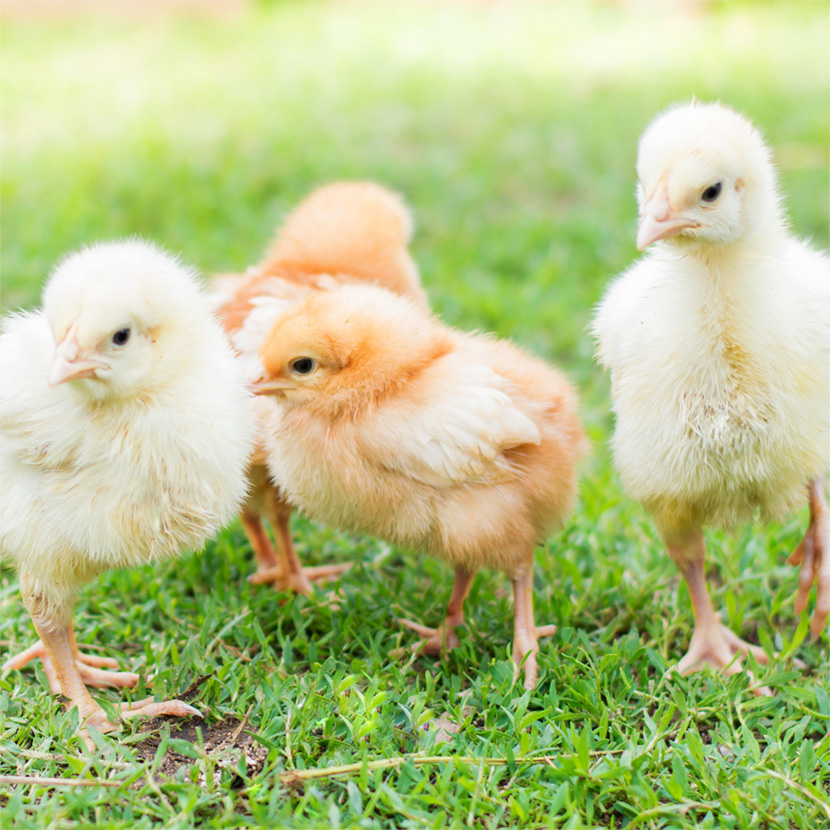
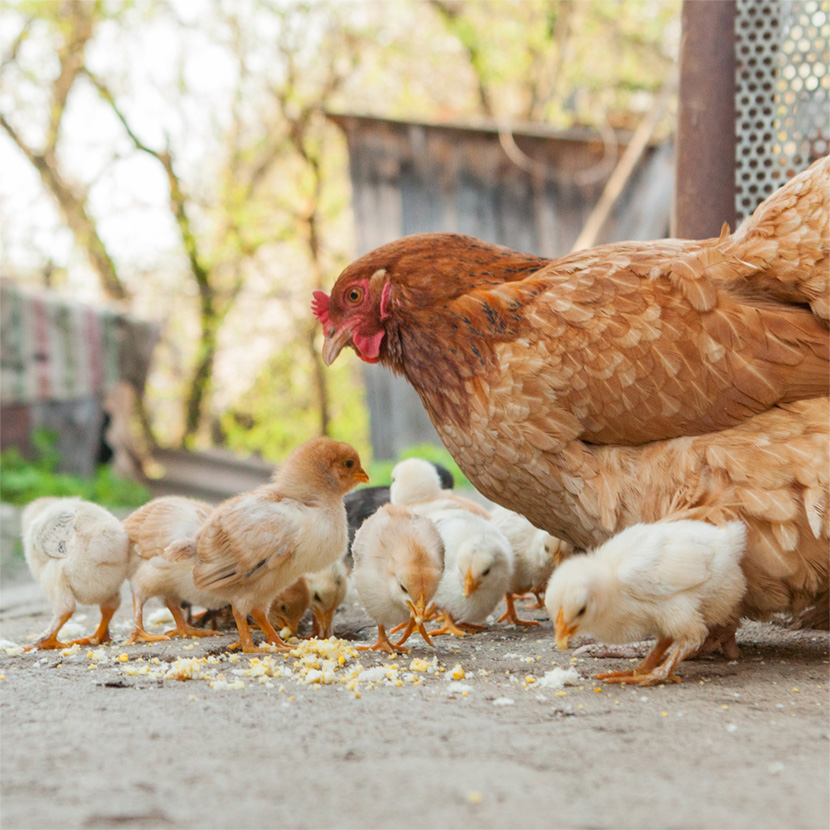
3. Their emotional side:
Studies suggest that chickens can show empathetic behaviour, especially hens towards their chicks. When a chick is in distress, hens respond with increased alertness and restlessness. They also respond to the emotional state of other chickens, similar to how dogs can respond to the emotions of their human owners. Chickens experience pleasure, for example, when dust-bathing or sunbathing. During or immediately after a dust bath, they often make soft, contented sounds that indicate relaxation and well-being. These social animals prefer to dust-bathe in a group. This strong emotional capacity of chickens is also often underestimated because they do not usually live so closely with people as pets.
It is not just because of all these amazing abilities that chickens deserve respect and appropriate husbandry that meets their natural needs.
How to keep chickens happy as pets
The dream of living with chickens as pets, i.e. away from the earlier idea of farm animals, is not as difficult to realise as many people think. However, we believe that it is part of our responsibility to the animals to find out what is involved in keeping them properly. With a little preparation and attention to detail, everyone can experience the joy of living with chickens. These are our top eight recommendations:
1. A safe barn:
Chickens need protection from predators such as foxes and martens at night. The barn should be dry, well ventilated and have perches and nest boxes.
2. Enough space:
Chickens are active animals and need space to scratch, peck and explore. A fenced or free-range area is ideal.
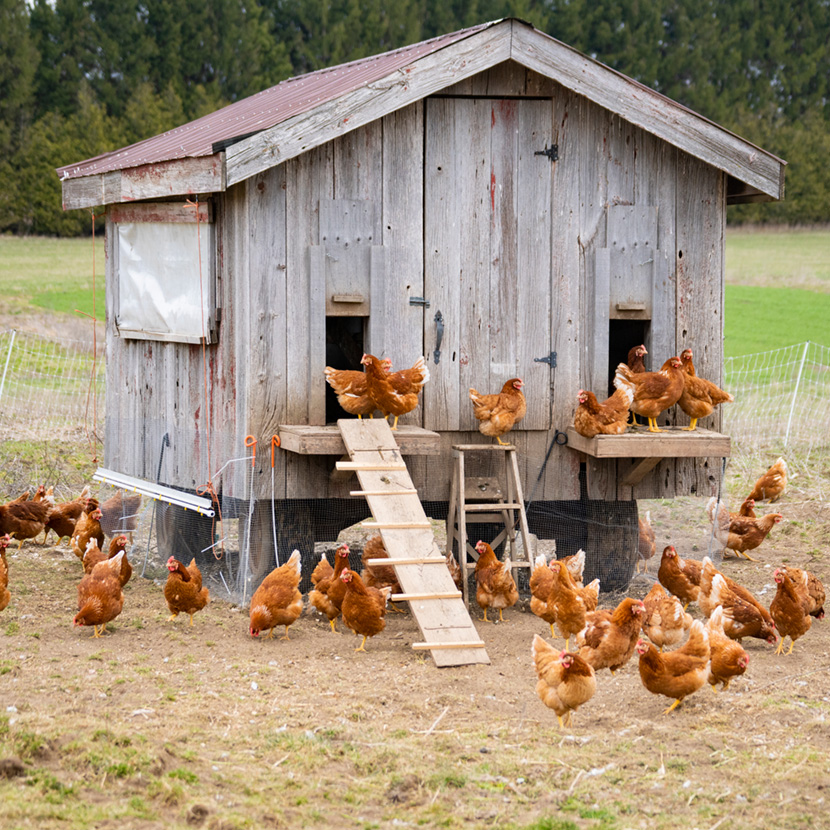
3. Appropriate food:
In addition to commercial grain foods, chickens love kitchen scraps such as vegetables, fruit or boiled potatoes. It is important that fresh water is always available.
4. Good care:
The barn must be kept clean and the animals should be checked regularly for disease. Chickens are relatively easy to look after, but need attention and care.
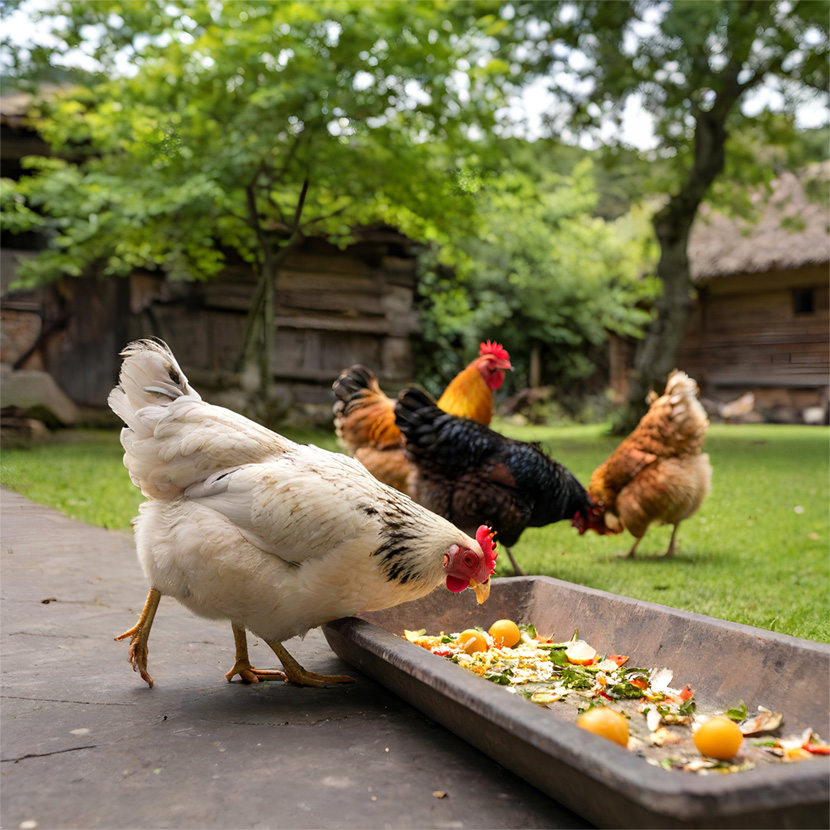
5. Sand or dust bath:
Chickens need an area where they can take a dust bath. This is a natural behaviour that helps them remove parasites such as mites and keep their feathers clean. A box or area with sand, fine soil or ashes will work well.
6. Social needs:
We now know that chickens are extremely social animals, and they should never be kept alone. A small group of at least three to four chickens is ideal to satisfy their need for companionship and allow for a harmonious pecking order.
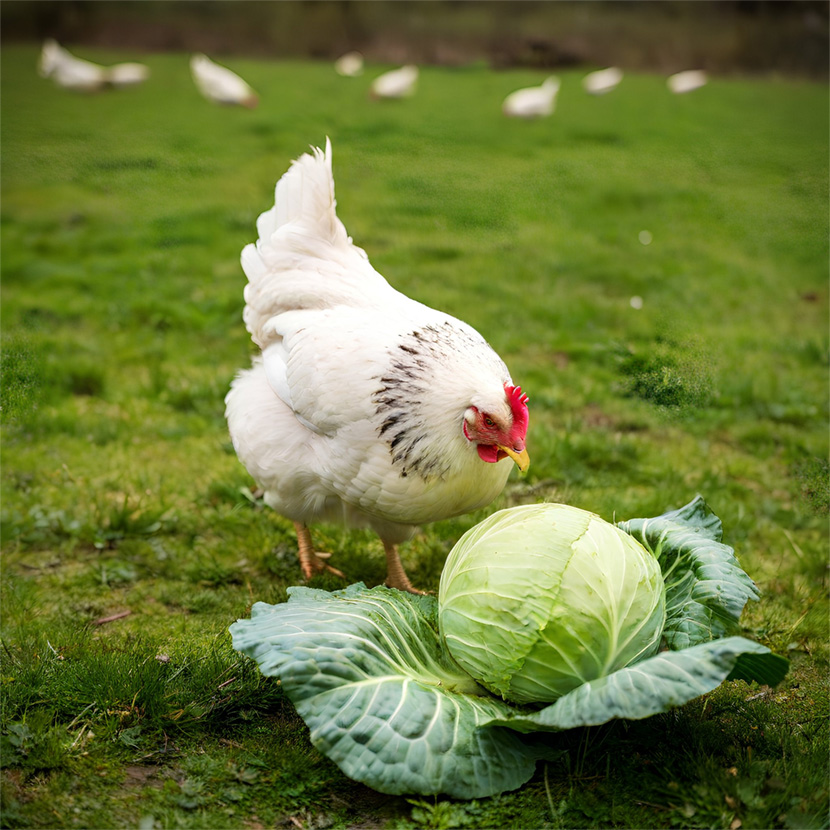
7. Meaningful activity:
Not just Heinrich and his hens – chickens are basically curious animals who appreciate stimulation and activity. Food games, hanging vegetables (such as a cabbage head for pecking) or areas for digging and exploring promote their well-being and prevent boredom, which can lead to behavioural problems.These additional measures will help chickens to express their natural behaviours in a human environment and stay healthy and happy.
8. Time and patience:
Chickens are not toys, they are living creatures with needs and characters of their own. The rewards for your time and effort will be many – fresh eggs, sustainable garden fertiliser and a very special form of companionship.
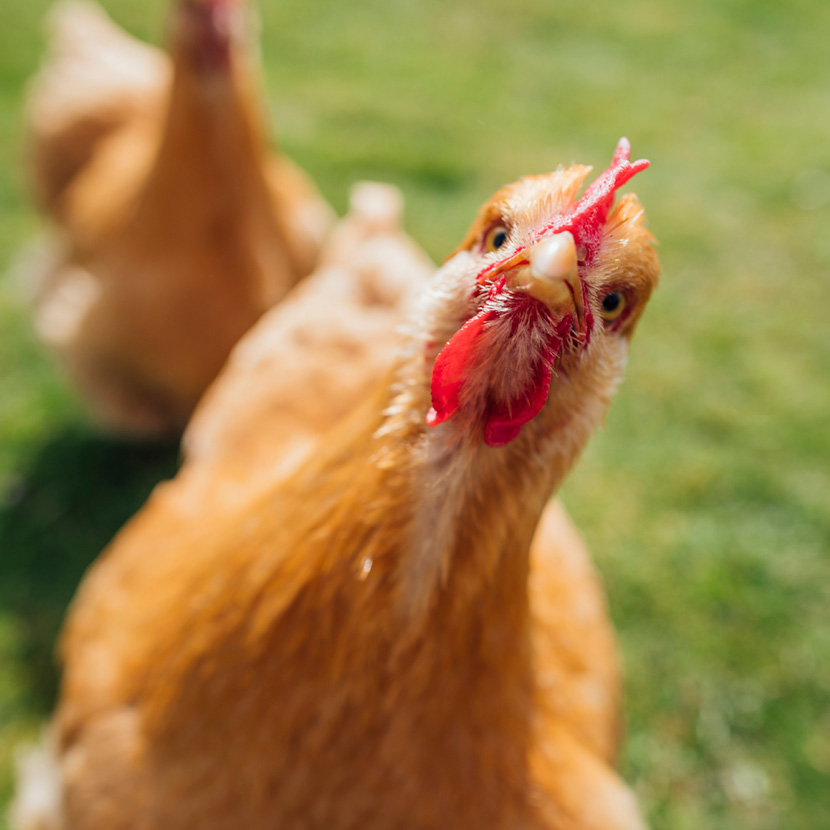
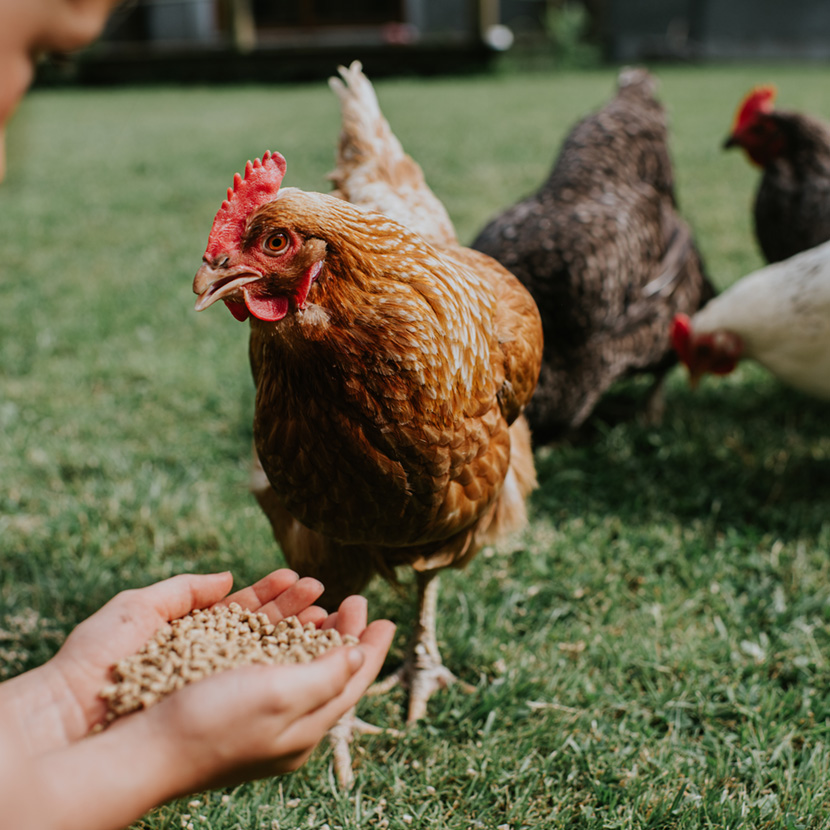
A life of rubber boots and gratitude
My flock of chickens has taught me more than I ever expected: mindfulness, patience and the beauty of a simple life. Every moment I spend watching them scratch, cluck or rest brings me closer to nature – and to myself.
If your heart is in the right place, you simply cannot support factory farming. For vegans, there are not only tasty chicken alternatives, but also egg substitutes rite dishes. There are even delicious alternatives to scrambled eggs – and the like.
Heinrich and his chickens are not just animals to us. They are part of our family, the heart of our farm and daily proof that the greatest joys are often the smallest – and sometimes feathered.

